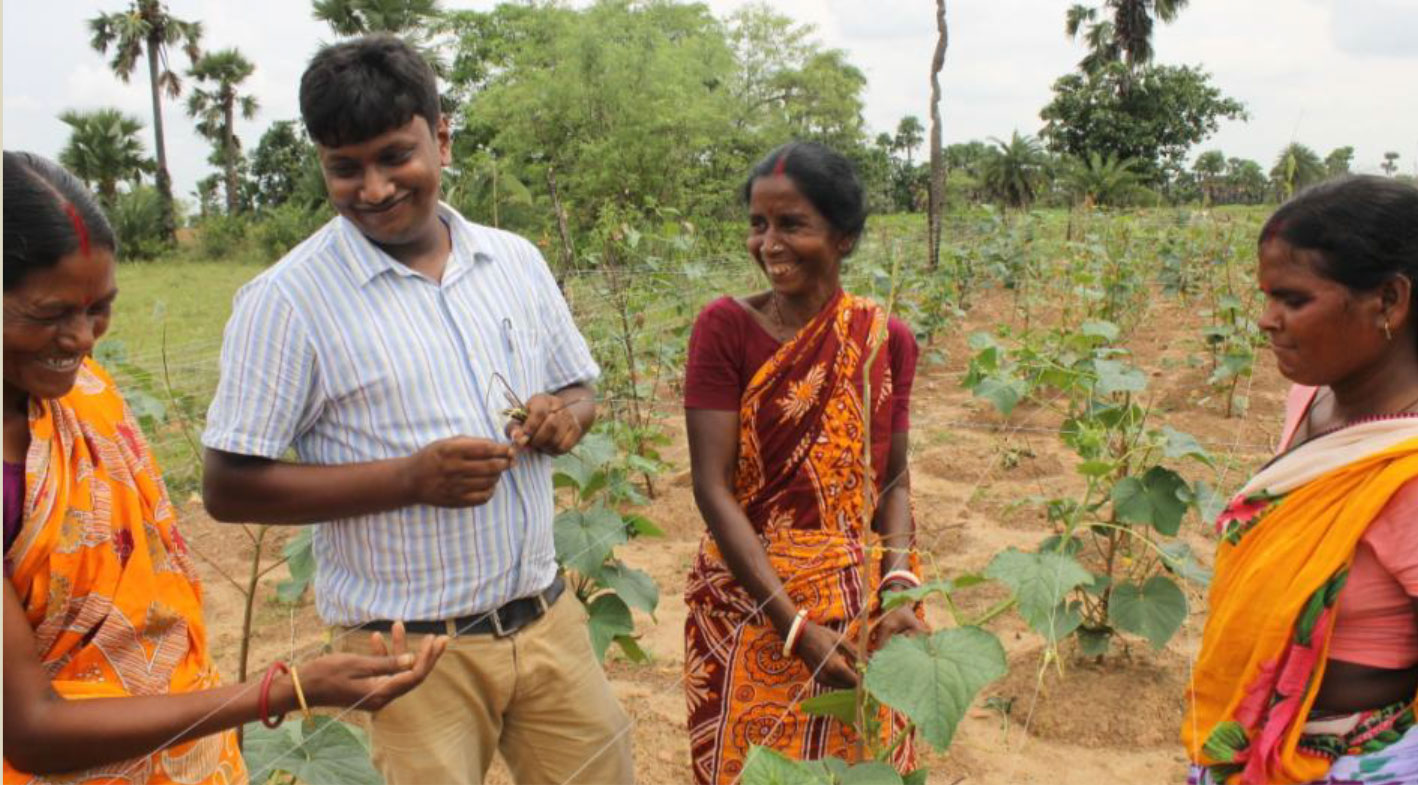

H T Parekh Foundation and PRADAN proudly announce the launch of a three year collaborative project “Strengthening Women’s Collectives for Gender Just Society, Citizenship and Livelihood Enhancement in the States of Chhattisgarh and West Bengal”. The initiative attempts to orchestrate concerted action for sustainable people-ecology equilibrium in remote tribal pockets of Chhattisgarh & West Bengal; wherein empowered communities are working in harmony with local governance institutions and duty bearers for rejuvenation, enrichment and sustainable usage of natural resources, leading to economic and overall well-being of communities. We aspire to enhance the capabilities of women and their collectives for action on environmental sustainability by investing in integrated natural resource management (INRM) to increase the carrying capacity of natural resources through enhanced claim making abilities and thereby accessing of entitlements under various constitutional provisions. The interventions will induce effects at different levels across family, area and economic subsectors benefitting a population of at least 300,000 in the 1000 project villages across 10 blocks in 5 districts of West Bengal and Chhattisgarh.
The 2 major objectives of this project are
Creating vibrant collectives of women and improved Grassroots Governance:
Strengthening 6000 SHG comprising nearly 70,000 women; these would include formation of about 2000 new SHGs.
Building on existing engagements in the 70% of operational blocks we would work to aware community on governance, citizenship and 40% of the collectives will start participating in local governance, occupying spaces in various village committee / bodies, claiming rights and programmes, etc.
We aspire to strengthen our existing work on facilitating change through women’s organisations to challenge the institutionalized processes that propagate inequities around class, and gender. It will enable the collectives to take affirmative action and bring about visible changes around gender norms in family, village and wider society and support women facing violence through counselling and peer group mechanisms.
Deepening and expanding livelihoods:
We would address issues related to year-round food availability by increasing the productivity of major food crops and the access to the entitlements of PDS, ICDS to supplement the food-grain availability at household level. This would ensure adequate food to meet annual consumption and nutrition needs for nearly 50,000 participating households through improved livelihoods activities. The project will also adequately focus on intensification and diversifications of climate resilient farming system through enhancing productivity of cash crops. This will enhance annual income of at least 60% of the women farmers participating in livelihood activities by Rs. 20,000 (per household) by the end of project period (approximately 30,000 households going above the Poverty line). Simultaneously, efforts would be made to sustain the increased productivity and reduce the production risk through INRM leading to augmentation of land and water resources. The interventions would also entail improving carrying capacity of land and water resources and provide better access to farmassets through channelizing funds from mainstream and own contribution. Last but not the least, facilitating creation of market linked agriculture production clusters for high value cash crops is a major output envisaged under this project. Agriculture production cluster (APCs) refers to a concept that makes a contiguous patch of villages a surplus producer of agricultural products, thereby enabling the producers to have a sustainable source of income.
H T Parekh Foundation has supported the cause with an aspiration to make a tangible impact on livelihoods of rural communities in areas of high need and leave behind strong and independently as well as democratically functioning SHGs and their associations to constantly improve the quality of life of the rural communities. Further, all women will have assured access to public systems and financial services from the local bank branches. They will also have more access to basic services, credit, markets and mainstream institutions. Carrying capacity of land and water resources in the area will improve; various people’s groups will influence creation of public and private assets and infrastructure, new business activities will get introduced and new market linkages will be forged. New technologies will get introduced and enhanced volume of various economic subsectors will boost the overall economy of the area. We are grateful to H T Parekh Foundation for supporting capacity enhancement of community members and investments towards comprehensive development of women’s lives and livelihoods.

